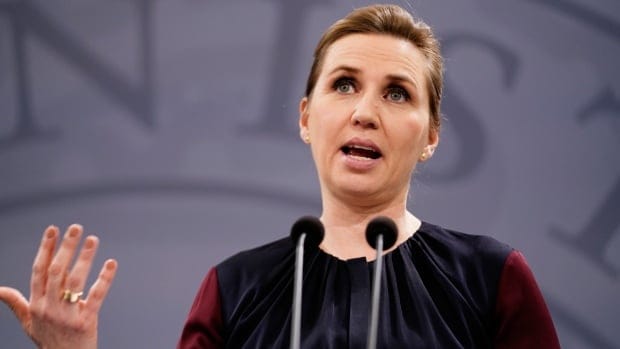Almost two years after the start of the global COVID-19 pandemic, Danish government announced that it will lift nearly all coronavirus curbs, even as neighboring Sweden extended its own measures for another fortnight.
“Tonight, we can shrug our shoulders and find the smile again. We have incredibly good news, we can now remove the last coronavirus restrictions in Denmark,” Prime Minister Mette Frederiksen said.
Frederiksen noted that while “it may seem strange and paradoxical” that the restrictions would be removed as Denmark experiences its highest infection rates to date, she pointed to the drop in the number of patients in intensive care, crediting widespread vaccination against COVID-19 for severing the link between the number of hospitalizations and that of infections.
Health Minister Magnus Heunicke agreed, stating that there has been a “decoupling between infections and intensive care patients, and it is mainly due to the large attachment among Danes to revaccination.”
“That is the reason why it is safe and the right thing to do now,” he claimed, announcing that that COVID-19 would no longer be considered a “socially critical disease” from February 1.
According to the Prime Minister, Denmark no longer considers coronavirus to be a “socially critical disease,” so the bulk of the COVID-19 restrictions will be lifted by February 1.
The only restriction that will remain in effect for the time being is the mandatory COVID-19 test for people entering Denmark si mba ọzọ.
Dị ka Òtù Ahụ Ike Ụwa (WHO), Denmark has recorded 3,635 deaths since the beginning of the pandemic and nearly 1.5 million cases.
An overwhelming number of the cases were recorded in the past two months alone.
However, deaths in the country peaked in December 2020. Around 80% of Danes have been vaccinated with two doses of a COVID-19 vaccine, while half of the population has already received a booster shot.
IHE Ị GA-Ewepụ na edemede a:
- Frederiksen noted that while “it may seem strange and paradoxical” that the restrictions would be removed as Denmark experiences its highest infection rates to date, she pointed to the drop in the number of patients in intensive care, crediting widespread vaccination against COVID-19 for severing the link between the number of hospitalizations and that of infections.
- “That is the reason why it is safe and the right thing to do now,” he claimed, announcing that that COVID-19 would no longer be considered a “socially critical disease” from February 1.
- According to the Prime Minister, Denmark no longer considers coronavirus to be a “socially critical disease,” so the bulk of the COVID-19 restrictions will be lifted by February 1.























